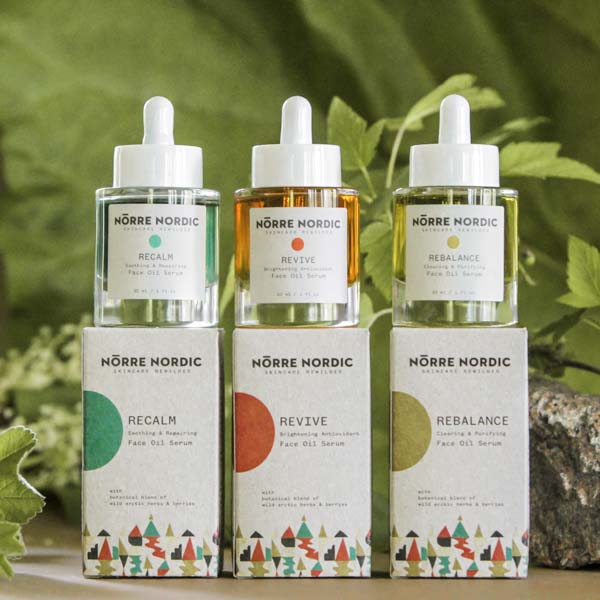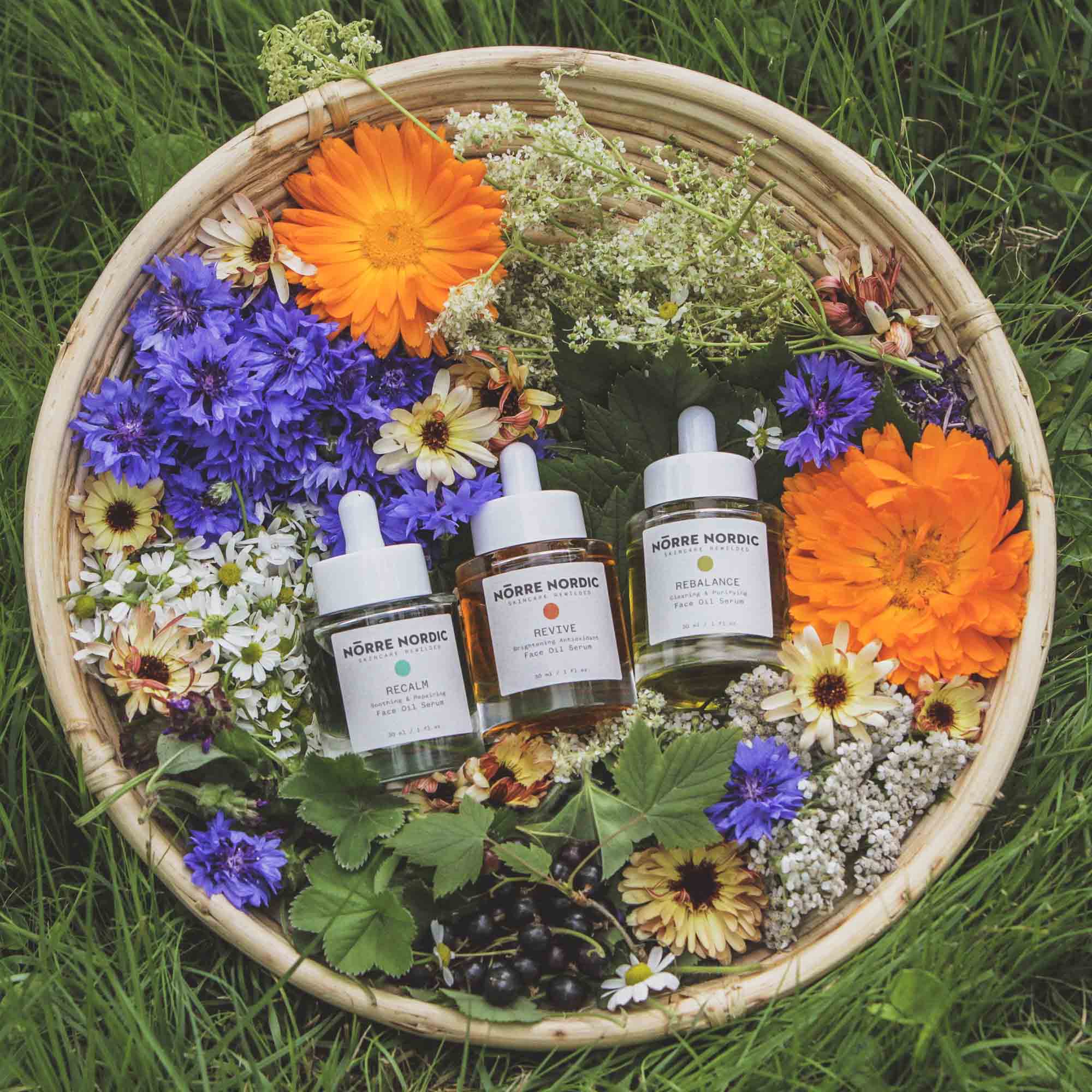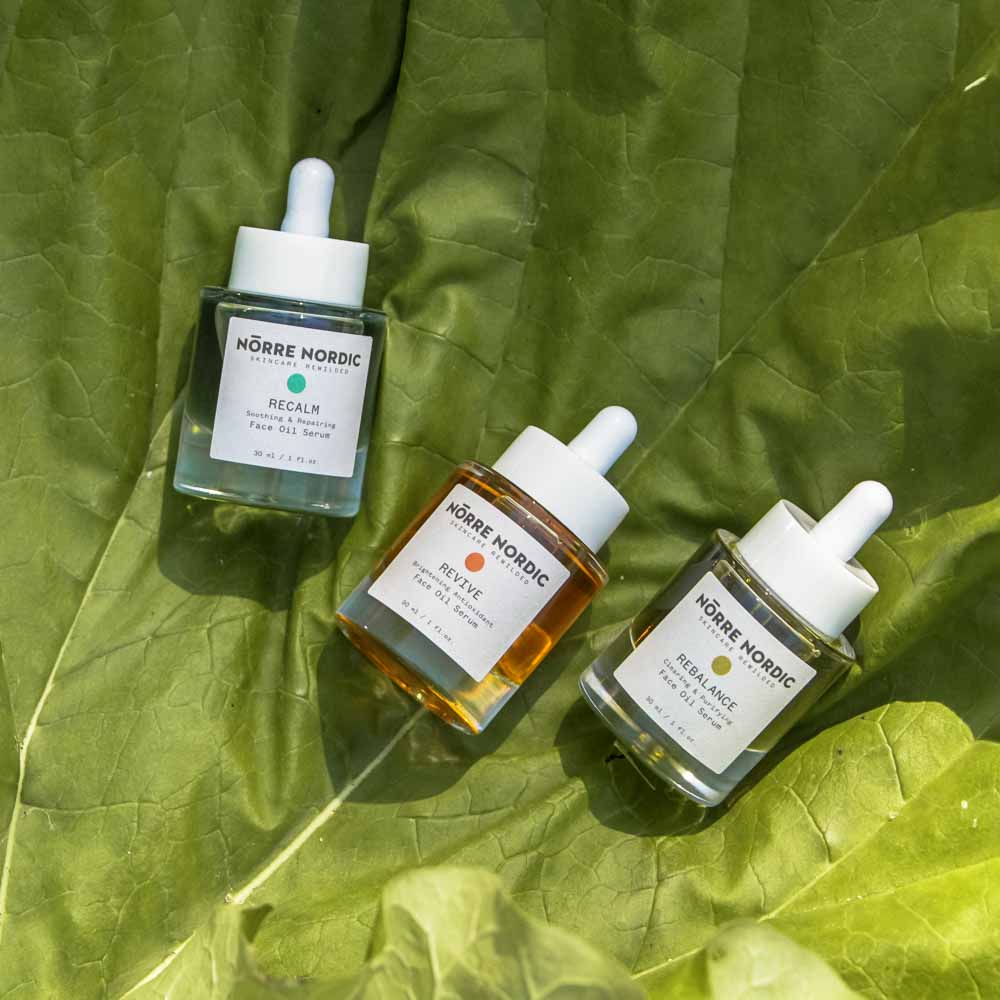What makes a skincare brand sustainable?

Sustainable skincare is more than just a buzzword in the beauty industry. As consumers become more conscious of the impact their choices have on the planet, they're seeking out brands that prioritize sustainability. In this article, we'll explore the key elements that make a skincare brand sustainable.
Scroll down to read
Introduction: Why Sustainability Matters in the Skincare Industry
Skincare has long been a staple in the world of beauty and self-care, with consumers often willing to spend large sums of money to achieve a flawless complexion. But as the demand for skincare products continues to grow, so too does the need for sustainable and ethical practices within the industry.
In recent years, there has been a surge in interest around the concept of sustainable skincare, which involves using ingredients and packaging that are eco-friendly and responsibly sourced. Sustainability is not just a buzzword, it is an essential consideration for any brand looking to establish a long-term and responsible presence in the market.
In this article, we will explore the importance of sustainability in the beauty industry and what makes a skincare brand truly sustainable. From ethical sourcing and production methods to responsible packaging and distribution, we will delve into the key factors that separate the truly sustainable brands from those that are simply greenwashing. So, whether you are a seasoned skincare enthusiast or a newcomer to the world of beauty, read on to learn more about the future of sustainable skincare.
The Unseen Impact of Your Skincare: Why Ethical Sourcing Matters
Sustainability in skincare is not just about using recyclable packaging or avoiding harsh chemicals. It extends to the very ingredients that make up the products we use on our skin. Ethical sourcing is a crucial component of sustainable skincare, as it involves not only sourcing ingredients responsibly but also ensuring that the communities, animals, and environment involved are not harmed in the process.
Ethical sourcing means sourcing ingredients in a way that benefits both the people involved in producing them and the environment. This involves working with suppliers who prioritize sustainability and treat their workers fairly, as well as using ingredients that are grown and harvested in ways that do not harm the environment.
The impact of unethical sourcing in the beauty industry can be severe. Many skincare ingredients are grown in developing countries, where workers may be subject to unfair labor practices, low wages, and unsafe working conditions. Additionally, some ingredients may be harvested in ways that harm the environment. In some cases, animals may even be exploited for their products, such as using animal-derived ingredients in skincare products or testing on animals.
It’s essential for consumers to support brands that prioritize ethical sourcing practices. By doing so, we can help ensure that the beauty industry is not only sustainable but also ethical and responsible. In the next section, we’ll explore some additional factors that contribute to a skincare brand’s sustainability.
Beyond the Ingredients: How Skincare Brands are Saving the Planet
The environmental impact of the beauty industry is massive, and it’s vital for skincare brands to adopt sustainable practices to minimize their contribution to the problem. In this chapter, we’ll explore how a skincare brand can minimize its environmental impact.
One of the most effective ways for a brand to reduce its environmental impact is to use eco-friendly packaging and manufacturing practices. This could mean using biodegradable or compostable packaging materials instead of plastic. Additionally, brands can choose to manufacture their products using renewable energy sources, like wind or solar power.
It’s important to remember that the beauty industry has a significant impact on the environment and that every brand must take responsibility for reducing its contribution to the problem. By adopting eco-friendly packaging and manufacturing practices and using renewable energy sources, skincare brands can help minimize their environmental impact and contribute to a more sustainable future.
Beauty Without Harm: The Rise of Cruelty-Free Skincare Brands
In addition to ethical sourcing and minimal environmental impact, a truly sustainable skincare brand must also be cruelty-free. This means that the brand does not engage in animal testing or use animal-derived ingredients in their products.
Animal testing is not only cruel but also unnecessary. There are many alternative methods of testing the safety and efficacy of skincare products that do not involve harming animals. Additionally, the use of animal-derived ingredients, such as collagen or lanolin, can be problematic for both ethical and environmental reasons.
Many consumers are now seeking out cruelty-free skincare products, and fortunately, there are several certifications that can help guide their choices. One of the most well-known certifications is the Leaping Bunny, which requires companies to demonstrate that they do not test on animals anywhere in the world. Other certifications, such as PETA’s Beauty Without Bunnies and Choose Cruelty-Free, also provide assurance that a brand is truly cruelty-free.
Ultimately, a skincare brand that is committed to being sustainable must prioritize the well-being of animals, as well as the environment and communities. By choosing products that are ethically sourced, have minimal environmental impact, and are cruelty-free, consumers can support brands that are working towards a more sustainable future for the beauty industry.
Openness in Beauty: Why Transparent Skincare Brands are Leading the Way
Transparency is a buzzword that is thrown around a lot these days, especially in the context of sustainability. In the realm of skincare, transparency is key to building trust with consumers who are looking for brands that align with their values. A sustainable skincare brand should be transparent about every aspect of its operations, from sourcing to manufacturing to packaging.
Open communication with customers is also essential. Consumers want to know where their products come from and what they’re made of. A brand that is transparent about its sourcing and manufacturing practices is more likely to gain the trust and loyalty of its customers.
Another way that a brand can be transparent is by obtaining certifications from third-party organizations. The Leaping Bunny certification, for example, is a widely recognized symbol of cruelty-free practices. By obtaining this certification, a brand can assure customers that its products are not tested on animals.
In summary, transparency and communication are vital components of a sustainable skincare brand. By being open and honest about their practices, brands can build trust with customers who are looking for eco-friendly and ethical options.
The Human Element of Skincare: Why Brands Must Prioritize Social Responsibility
When it comes to sustainable skincare, social responsibility is a crucial aspect that cannot be overlooked. Social responsibility refers to a brand’s commitment to ethical practices and its impact on society. This includes fair labor practices, safe working conditions, and giving back to local communities.
Skincare brands that prioritize social responsibility ensure that their products are not made at the expense of workers’ rights or their well-being. They also make sure that their ingredients are ethically sourced and their packaging is eco-friendly.
One way that brands can demonstrate social responsibility is by providing fair wages and safe working conditions for their employees. This means that workers are not exploited and are given the necessary tools and support to perform their jobs safely and efficiently.
In addition to supporting their employees, sustainable skincare brands can also give back to their local communities. This can involve donating a portion of their profits to organizations that support environmental and social causes or partnering with local organizations to create positive change in their communities.
Overall, social responsibility is an important part of sustainable skincare. Brands that prioritize fair labor practices and give back to their communities not only create a positive impact but also inspire their customers to make conscious choices that benefit both themselves and the world around them.
The Sustainability of Nordic Skincare Brands
Nordic skincare is making waves in the beauty industry, with Nordic brands leading the way in sustainability. The Nordic and Scandinavian people’s deep love for nature is ingrained in their skincare philosophy, which celebrates the natural beauty of the forest and utilizes unique ingredients found in Nordic forests. Nordic skincare products are renowned for using natural and wild ingredients straight from the forest, such as wild-picked berries and herbs, which are packed with antioxidants, vitamins, and minerals. These ingredients have been used by the Finnish people for centuries to protect and nourish their skin against harsh weather conditions.
However, what sets Nordic skincare brands apart is their unwavering commitment to sustainability. These brands source locally and wildcrafted plants from the Nordic forests to reduce their carbon footprint and support the local ecosystem. Additionally, they use eco-friendly packaging to further minimize their impact on the planet. Sustainability is at the core of the Nordic skincare philosophy, which values the connection between nature and beauty.
Learn more: What is unique about Nordic skincare?
The unique combination of nature and sustainability in Nordic skincare sets it apart from other skincare brands. By using ingredients that are naturally abundant in the Nordic forests and employing sustainable practices, Nordic skincare brands offer high-quality products while preserving the natural beauty of the region for future generations.
The Future of Skincare: How Supporting Sustainable Brands is Paving the Way for a Brighter Beauty Industry
As we wrap up this discussion on sustainable skincare, it’s important to remember the key takeaways we’ve covered. From ethical sourcing to minimal environmental impact, cruelty-free practices to transparency and social responsibility, there are many factors to consider when choosing a skincare brand that aligns with your values.
Supporting sustainable skincare brands not only benefits the environment and animals, but also supports fair labor practices and local communities. As consumers, we have the power to make a difference through the choices we make, and choosing to support sustainable brands is a step in the right direction.
As the beauty industry continues to evolve and consumers become more conscious of the impact their choices have, it’s clear that the future of skincare lies in sustainability. By supporting brands that prioritize sustainability and ethical practices, we can help shape the future of the industry and create a better world for all.
Further reading

Rewilding Your Skin: The Benefits of Going Back to Nature
I've witnessed how skincare has evolved over the years. From the latest breakthrough technology to the hottest trends, skincare has become more sophisticated than ever before. But what if I told you that one of the most significant trends in skincare right now involves going back to nature? That's right; it's called rewilding your skin, and it's a game-changer.
Continue reading
What is unique about Nordic skincare?
If you're on the lookout for a natural, sustainable approach to skincare, Nordic and Finnish skincare might be just what you need. From the Scandinavian minimalistic approach to the Finnish love of nature, this article highlights the unique aspects of Nordic and Finnish skincare, and how the rest of the world can benefit from this natural, sustainable approach to skincare.
Continue reading